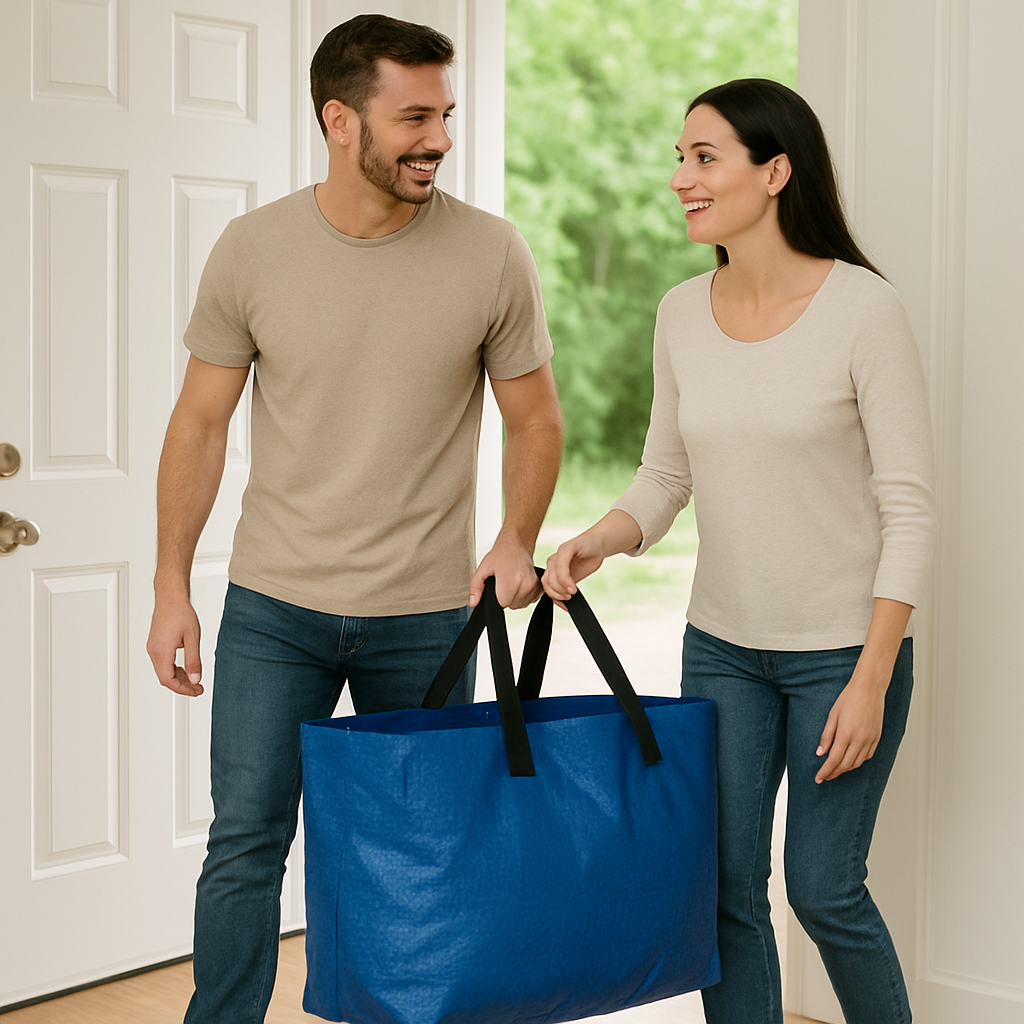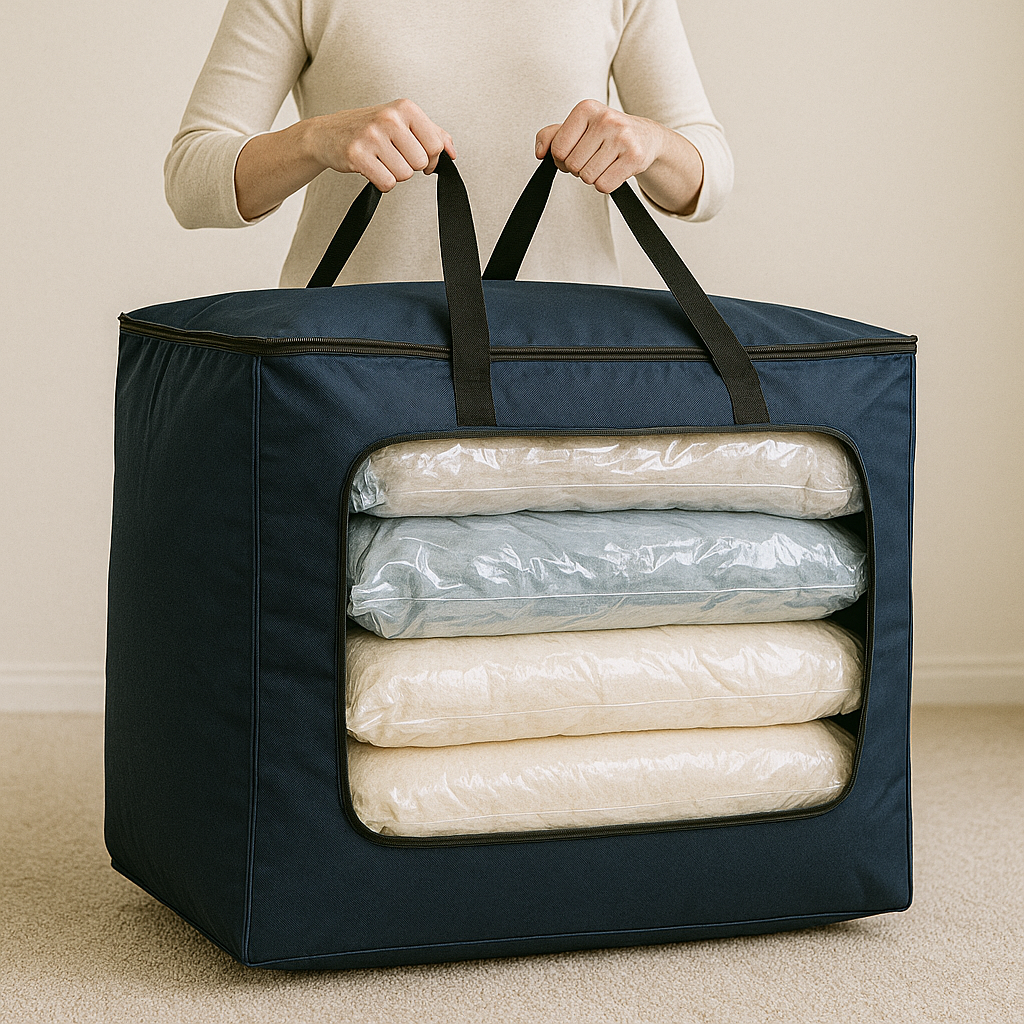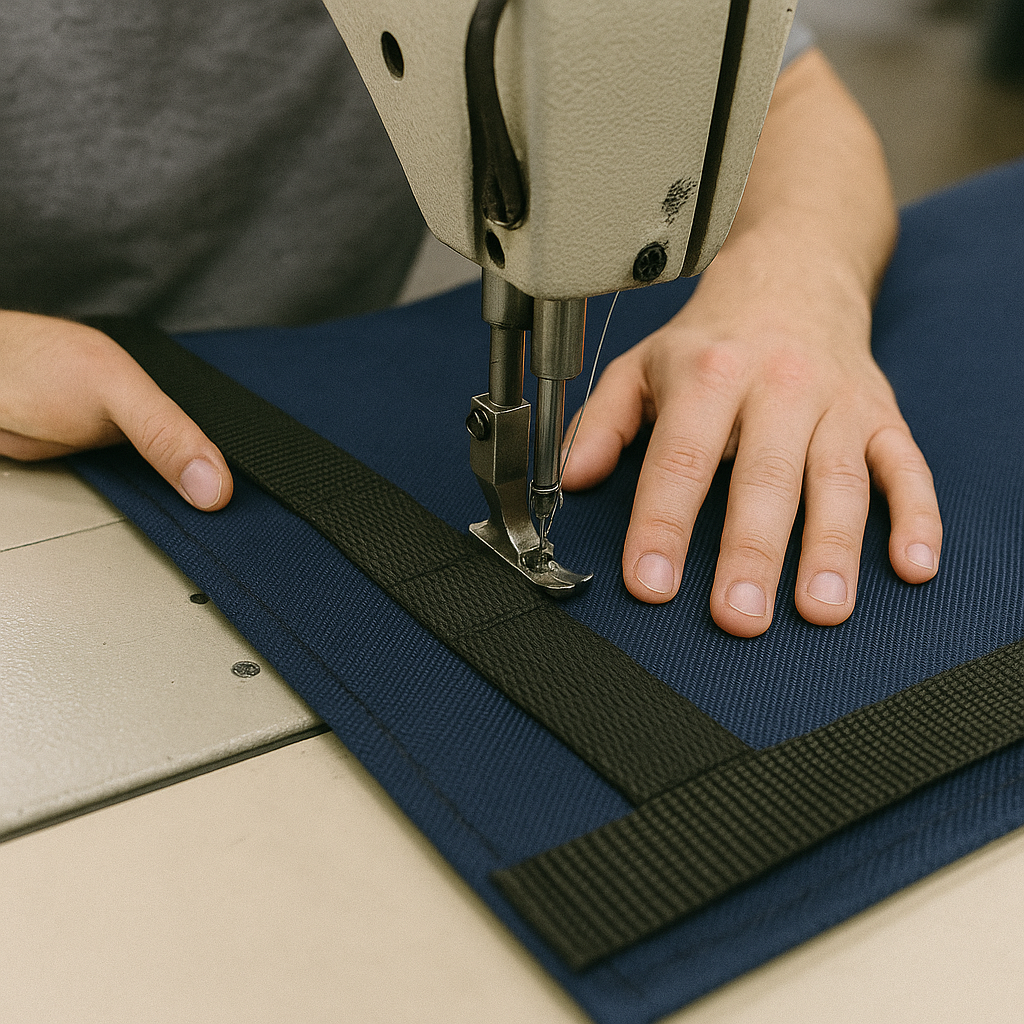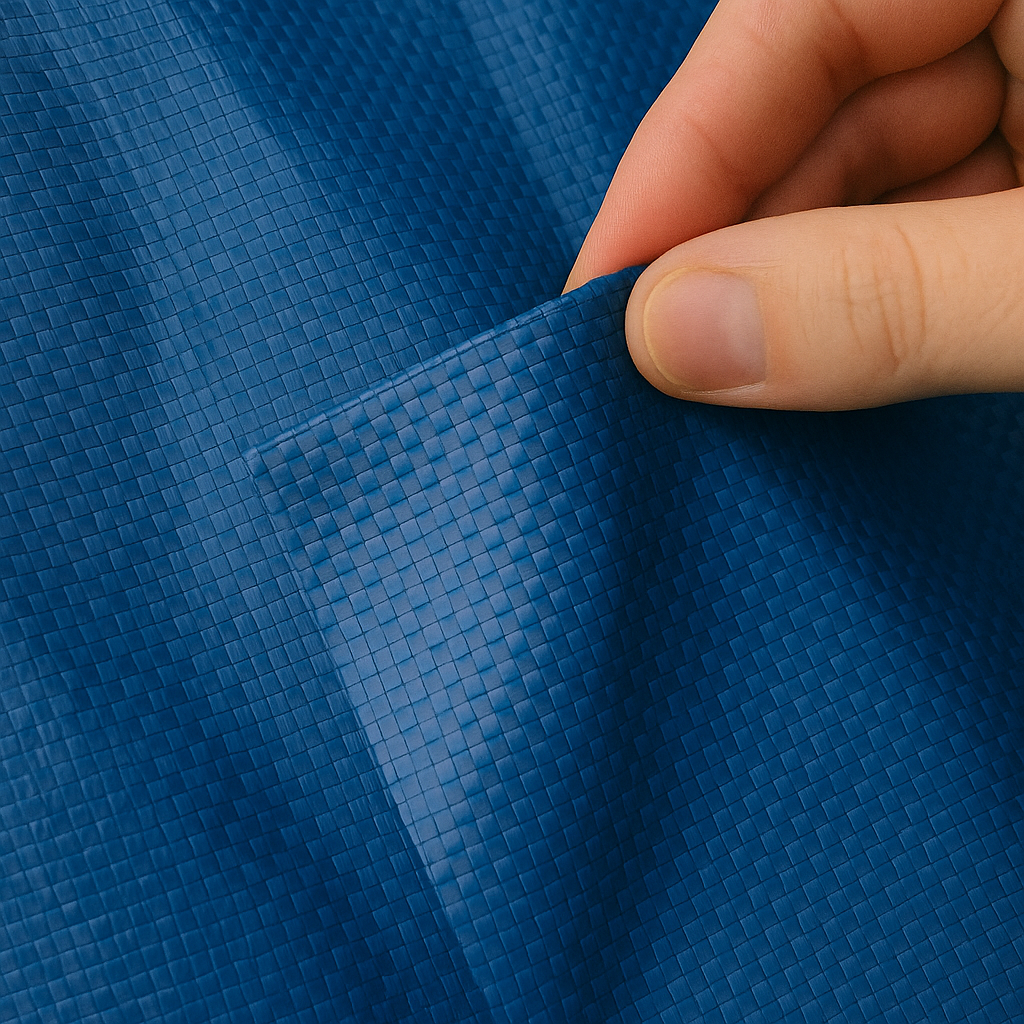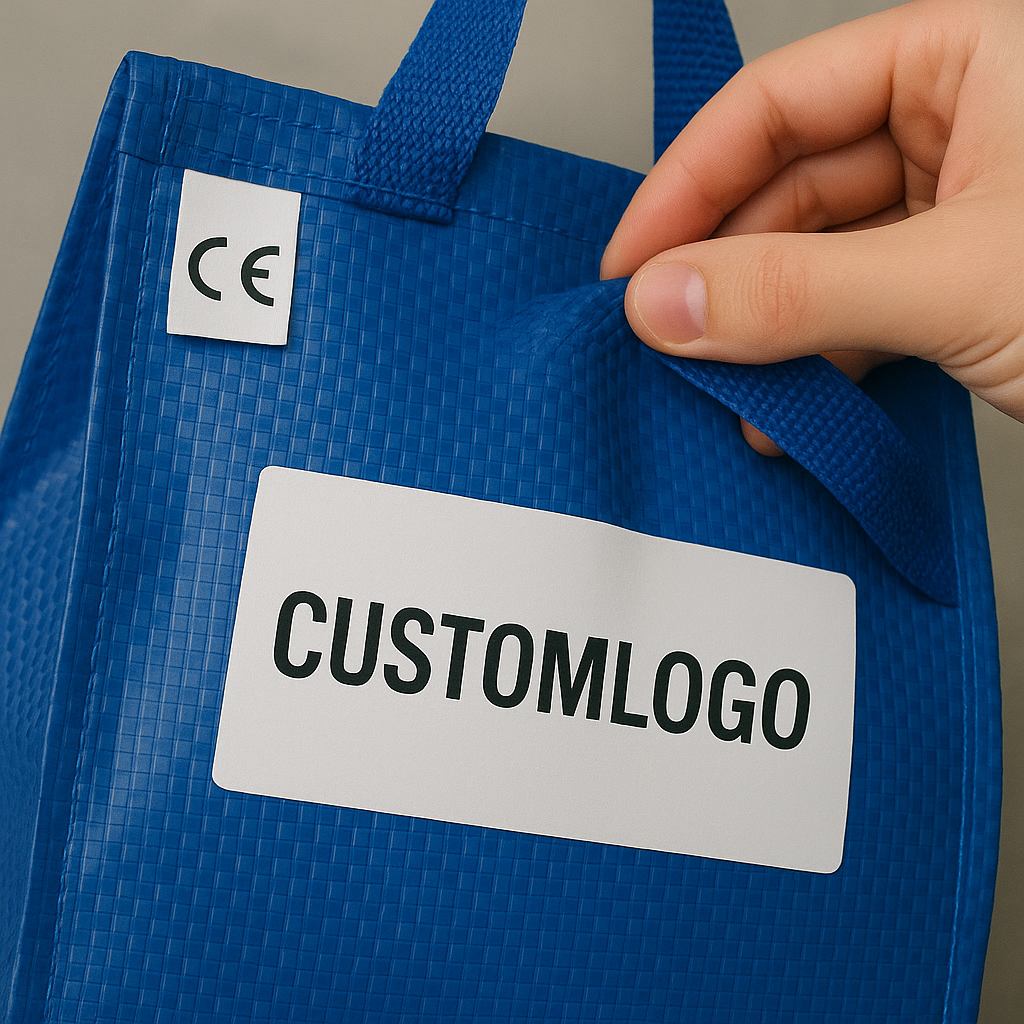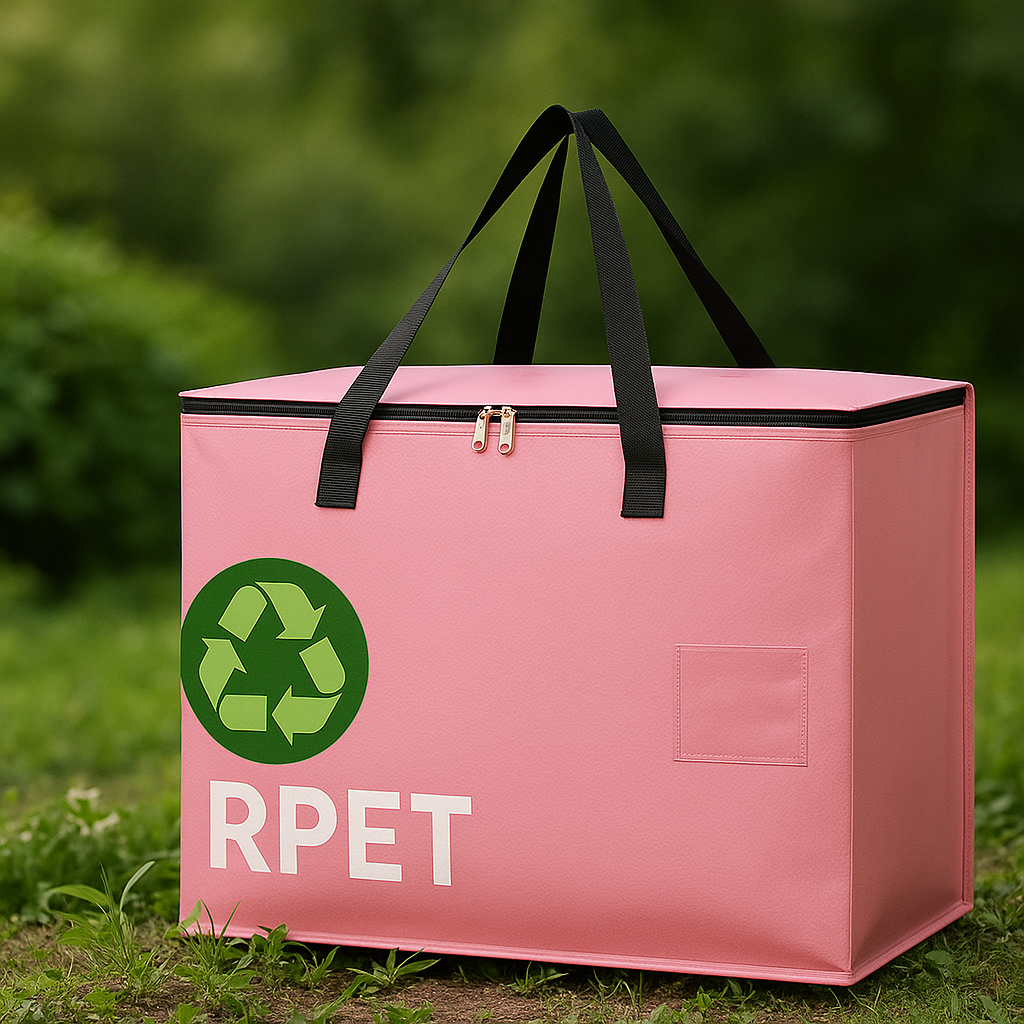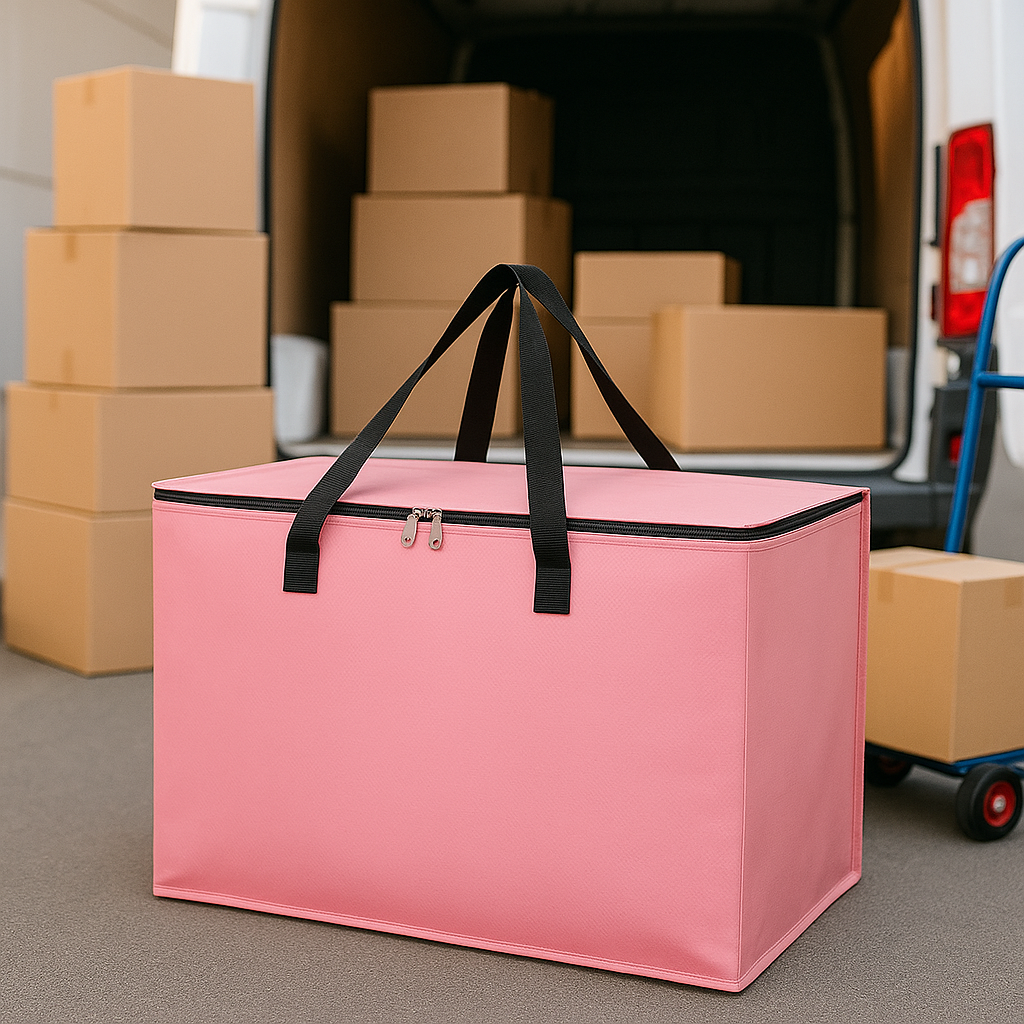Struggling with torn boxes and chaotic moves? Discover why moving bags might just change how you relocate forever.
Moving bags are reusable, flexible, and easier to carry compared to boxes1, offering a more efficient solution for household moving needs.
Boxes aren’t your only option. Keep reading to see how moving bags can make packing simpler, faster, and smarter.
Do movers prefer boxes or bags?
Boxes crush easily and take up space. Bags adapt and stack. So which one do movers really prefer?
Professional movers often prefer boxes for stacking, but bags are favored for odd-shaped or soft items like clothing and linens2.
Different Uses for Boxes and Bags
Movers generally choose based on item type. Boxes are best for fragile goods that need structure. Bags are better for flexible packing and items that don’t break.
Pros and Cons Comparison
| Item Type | Boxes (Cardboard) | Moving Bags (Fabric) |
|---|---|---|
| Books | ✅ Sturdy | ❌ Can tear under weight |
| Clothes | ❌ Wastes space | ✅ Flexible, compressible |
| Fragile items | ✅ Better protection | ❌ Less shock-resistant |
| Bulky fabrics | ❌ Difficult to pack | ✅ Fits easily |
| Irregular items | ❌ Inefficient to pack | ✅ Adapts to shape |
In practice, movers use both. Boxes form a strong stackable base. Bags fill gaps between boxes, especially in car trunks or oddly shaped storage.
Many professional movers also suggest clients pre-pack clothing in large zippered moving bags3. They appreciate the convenience, less taping, and how bags can be carried with one hand or on your back.
Do space saver bags really work?
Bulky clothes take too much room? Space saver bags claim to shrink everything. Do they really deliver?
Yes, space saver bags work by removing air to reduce the volume of soft items like clothes, blankets, and pillows.
How Compression Works in Moving
These bags compress air using a vacuum or rolling technique. When air is removed, fabric compresses, reducing the storage space needed.
Compression Performance Comparison
| Bag Type | Compression Ratio | Best For | Durability |
|---|---|---|---|
| Vacuum seal bags | Up to 80% | Seasonal storage | Moderate |
| Roll-up bags | Up to 50% | Short-term moves | High |
| Regular moving bag | None | General moving | Very High |
I used vacuum bags for all my winter gear and bedding. What usually took two boxes fit into one suitcase. Just be careful with thin plastic—they tear easily.
In our factory, clients often ask for large-capacity moving bags that can hold multiple vacuum-sealed bags inside4, offering double protection and better organization.
What is the most efficient way to pack clothes for moving?
Folding, rolling, or tossing into bags? Which way saves time and space while protecting your wardrobe?
Rolling clothes and using moving bags or space saver bags is often the most efficient method for packing clothes.
Techniques to Maximize Packing Efficiency
Rolling compresses air pockets, saving more space than folding. When combined with cube organizers or bags, it speeds up both packing and unpacking.
Efficiency Methods
| Method | Time Required | Space Savings | Wrinkle Risk | Best For |
|---|---|---|---|---|
| Folding | Moderate | Low | Low | Business attire |
| Rolling | Fast | High | Medium | T-shirts, jeans |
| Stuffing bags | Very Fast | Variable | High | Everyday casual items |
| Vacuum Seal | High | Very High | Low | Winter jackets, duvets |
For clients in retail or promotional gift programs, we often recommend including printed packing tips inside the bags5 to add value and help end users pack smarter.
I’ve personally helped a buyer from the U.S. include QR code labels inside moving bags. Scanning the code links to a packing guide video—a small touch that makes a big brand impression.
The advantages of using moving bags for moving house?
Heavy boxes, ripped corners, endless tape—moving can be frustrating. Is there a better solution?
Moving bags are reusable, waterproof, and easy to carry, making them an excellent alternative for residential moving.

Why I Prefer Moving Bags Over Boxes
They collapse flat when not in use and expand massively when filled. Most come with wide zippers and reinforced handles that don’t tear.
Key Benefits of Moving Bags
| Feature | Benefit |
|---|---|
| Reusability | Can be used multiple times |
| Waterproof | Protects contents from rain or spills |
| Lightweight | Easier to carry and load |
| Flexible Shape | Fits in irregular car or storage spaces |
| Zippered Closure | No need for tape or extra sealing |
| Stackable Design | Folds flat when empty, expands when full |
Bags are ideal for anyone living in apartments or moving frequently. They’re also easy to store after the move, unlike bulky used boxes.
In fact, some clients use these bags not only for moving but also for seasonal storage, travel, and laundry. That’s why retailers love selling them as multi-use items.
The moving bag has several manufacturing processes?
Curious how these bags hold so much weight without tearing? It all starts with how they’re made.
Moving bags go through cutting, stitching, and reinforcement processes6 to ensure durability and load capacity.
Behind the Factory Doors
With five production lines, our factory can handle large OEM orders with strict delivery schedules. We specialize in B2B for buyers who value repeat quality.
Key Production Steps
| Process Step | Description |
|---|---|
| Cutting | Material is sliced into precise dimensions |
| Sewing | Heavy-duty threads bind materials together |
| Reinforcement | Seams and handles are reinforced |
| Printing | Logos or patterns are applied |
| QC Inspection | Every bag is tested for defects |
We often offer full-service customization, including logo printing, color matching, and barcode labeling. Buyers like Walmart or Sam’s Club need clear branding and product traceability.
All bags are drop-tested and inspected using tension machines to ensure they can handle daily use.
What materials are needed to make a moving bag?
Plastic? Fabric? What exactly makes up these sturdy, flexible movers’ best friends?
Most moving bags are made from woven polypropylene (PP) or recycled RPET7, known for their durability and eco-friendliness.
Material Choices and Environmental Benefits
Choosing materials affects cost, appearance, strength, and sustainability. For B2B buyers, material choice can align with their brand’s green goals.
Common Materials Used
| Material | Properties | Environmental Impact |
|---|---|---|
| PP Woven | Strong, water-resistant, low cost | Non-biodegradable |
| RPET | Recycled, eco-friendly, durable | Positive |
| Nylon | Flexible, lightweight, abrasion-resistant | Medium |
| Canvas | Natural fiber, breathable | Biodegradable |
| PE Coating | Water barrier, glossy finish | Adds recyclability |
Our RPET bags are made from recycled plastic bottles and come with GRS certification. This appeals to brands that promote eco-conscious shopping and corporate responsibility.
Retail chains often ask for matte or glossy coatings depending on whether the bag is sold or given as a freebie. We can also customize material thickness from 120GSM to 200GSM for different use cases.
Why moving bags are better suited for international buyers?
Not all customers are domestic. International buyers, such as importers for big retail chains or promotional product agencies, have their own unique requirements.
Moving bags meet international buyer demands for customization, certifications, and logistics efficiency8, making them a preferred option in global sourcing.
What International Buyers Look For
From North America to Europe, customers expect more than just a durable product—they want reliability, consistency, and compliance.
Key Buyer Considerations
| Criteria | Why It Matters |
|---|---|
| Certifications | Required to pass import and retail standards (e.g. GRS, BSCI) |
| Logo & Branding | Must reflect brand identity and marketing strategy |
| Consistent Quality | Ensures repeat business and smooth resale |
| Custom Dimensions | Needed for unique market uses or display systems |
| Packaging & Labelling | Aligns with retail shelf or e-commerce logistics |
Our factory supports all these with tailored OEM/ODM services. For example, a buyer from Germany requested biodegradable zipper tags for their “eco home” brand line. We helped design it and sourced the materials accordingly.
How do moving bags support sustainability goals?
Today’s global market is shifting toward eco-friendly products. So how do moving bags fit into that picture?
Eco-conscious moving bags, especially those made from RPET, support sustainability goals by reducing waste and reusing resources9.
Environmental Value Beyond Packaging
Every moving bag made from recycled plastic bottles saves raw material, reduces landfill pressure, and supports the circular economy.
Sustainability Impact Table
| Feature | Environmental Benefit |
|---|---|
| RPET Fabric | Uses post-consumer plastic waste |
| Reusability | Reduces single-use packaging |
| Durable Design | Extends product life cycle |
| Minimal Packaging | Reduces shipping waste |
| Certifications Available | GRS, REACH, BSCI for traceable compliance |
How do moving bags improve warehouse and delivery operations?
Moving isn’t just about homeowners—it’s also about the logistics chain. Warehouses, delivery teams, and retailers benefit too.
Moving bags improve operational efficiency by reducing handling time, optimizing storage, and simplifying loading and unloading10.
Real-World Logistics Benefits
Retail clients use moving bags in more than just sales—they’re useful inside the warehouse too. Their shape and handle design make them ideal for short-distance distribution.
Operational Efficiency Overview
| Feature | Operational Impact |
|---|---|
| Stackable & Flexible | Maximizes truck and shelf space |
| Fast Loading Handles | Speeds up warehouse processing |
| Foldable Design | Saves storage when not in use |
| Color-Coding Options | Aids inventory sorting or route organization |
| Barcode Ready Surfaces | Streamlines tracking and inventory systems |
Conclusion
Moving bags are not just tools for relocation—they are multifunctional, eco-conscious, and globally scalable solutions for modern living, retail, and logistics.
-
Understand how moving bags outperform boxes in flexibility and reusability. ↩
-
Learn why bags are ideal for soft, irregular items movers handle. ↩
-
Discover the benefits of zippered moving bags in relocation. ↩
-
See how double-layered packing boosts protection during transport. ↩
-
Add value with smart packing tips that enhance user experience. ↩
-
Learn the production steps ensuring moving bag strength and reliability. ↩
-
Know the eco and practical benefits of PP and RPET materials. ↩
-
See how moving bags meet international buyers’ sourcing standards. ↩
-
Explore how RPET bags support circular economy and reduce waste. ↩
-
Discover how moving bags streamline logistics and warehouse tasks. ↩

